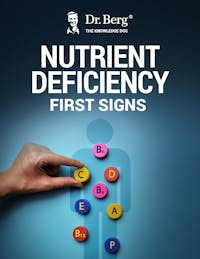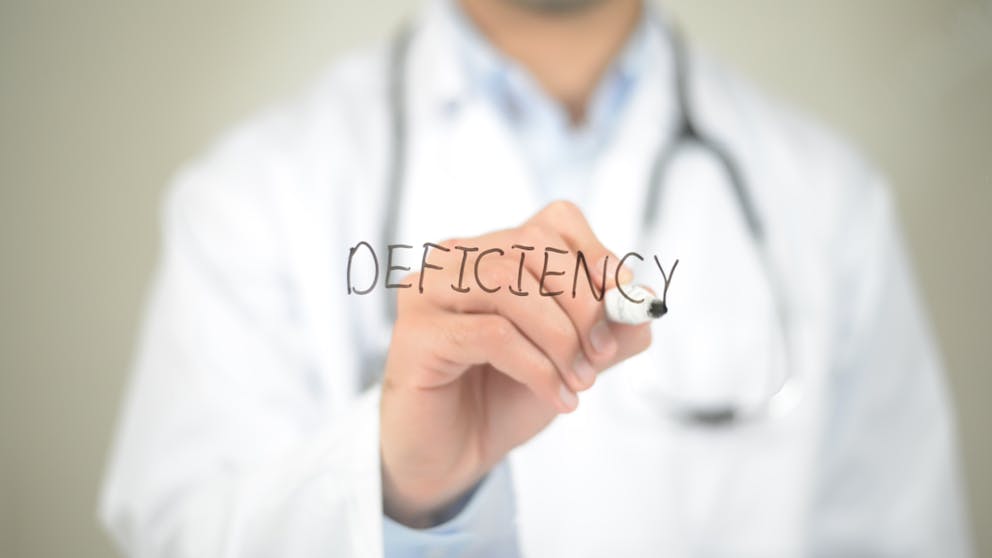Do You Have a Copper Deficiency

25 Top Supplements That Really Work
Discover the most effective supplements to promote a healthy body
Learn about key supplements to support digestion, brain function, energy, and more
Understand how to manage common health issues with specific supplements

25 Top Supplements That Really Work
Discover the most effective supplements to promote a healthy body
Learn about key supplements to support digestion, brain function, energy, and more
Understand how to manage common health issues with specific supplements

25 Top Supplements That Really Work
Discover the most effective supplements to promote a healthy body
Learn about key supplements to support digestion, brain function, energy, and more
Understand how to manage common health issues with specific supplements

25 Top Supplements That Really Work
Discover the most effective supplements to promote a healthy body
Learn about key supplements to support digestion, brain function, energy, and more
Understand how to manage common health issues with specific supplements

25 Top Supplements That Really Work
Discover the most effective supplements to promote a healthy body
Learn about key supplements to support digestion, brain function, energy, and more
Understand how to manage common health issues with specific supplements

25 Top Supplements That Really Work
Discover the most effective supplements to promote a healthy body
Learn about key supplements to support digestion, brain function, energy, and more
Understand how to manage common health issues with specific supplements

The First Signs of a Nutrient Deficiency
Learn how to recognize early symptoms related to specific nutrient deficiencies
Receive a downloadable list of early indicators your body is lacking key nutrients

The First Signs of a Nutrient Deficiency
Learn how to recognize early symptoms related to specific nutrient deficiencies
Receive a downloadable list of early indicators your body is lacking key nutrients

The First Signs of a Nutrient Deficiency
Learn how to recognize early symptoms related to specific nutrient deficiencies
Receive a downloadable list of early indicators your body is lacking key nutrients

The First Signs of a Nutrient Deficiency
Learn how to recognize early symptoms related to specific nutrient deficiencies
Receive a downloadable list of early indicators your body is lacking key nutrients

The First Signs of a Nutrient Deficiency
Learn how to recognize early symptoms related to specific nutrient deficiencies
Receive a downloadable list of early indicators your body is lacking key nutrients

The First Signs of a Nutrient Deficiency
Learn how to recognize early symptoms related to specific nutrient deficiencies
Receive a downloadable list of early indicators your body is lacking key nutrients
Recognizing and Addressing Copper Deficiency Symptoms
Understanding copper deficiency symptoms is crucial for maintaining optimal health. Copper plays a pivotal role in various bodily functions, and an acquired deficiency can lead to several health implications.
Discover the neurological consequences of inadequate copper levels, how it affects immune system performance, and why it can cause muscular fragility.
Learn about dietary solutions to prevent or correct such deficiencies.
Understanding Copper Deficiency
Copper deficiency is a condition with symptoms that are often elusive. This essential mineral plays vital roles in collagen formation and enzyme activity within our bodies.
However, its absence can lead to various issues like postural instability, ligament problems, flat feet, and even vitiligo.
The Role of Copper
Copper is indispensable for red blood cell production, bone health, nerve function, and immune support.
It aids in iron absorption, ensuring proper oxygen delivery, and acts against harmful free radicals, guarding against chronic diseases.

Consequences of having a Copper Deficiency
When copper levels drop, anemia can develop, causing low hemoglobin and oxygen-deprived blood.
Additionally, nerve-related symptoms such as numbness and weakness may manifest.
Moreover, copper deficiency heightens the risk of cardiovascular diseases, posing a significant threat to overall well-being.
Symptoms Of Copper Deficiency
Be attentive to signs signaling copper deficiency as they are crucial indicators of potential health issues.
Neurological Effects Of Copper Deficiency
Vision loss: Watch out for optic neuropathy, where the optic nerve declines in health, your vision suffers.
Muscle weakness: Without enough copper, your muscles lose their strength.
Anemia And B12-Like Symptoms:
Fatigue and pale skin are common indications of copper deficiency, affecting energy levels and blood cell production.
If you notice these symptoms, consider supplementing B-12 with the approval of a healthcare provider.
Ensuring Adequate Copper Intake
Maintaining a balanced diet rich in copper-containing foods is essential for preventing or managing deficiency-related concerns.
Preventing or managing copper deficiency can be achieved through a balanced diet that includes foods rich in this essential trace mineral. A well-rounded meal plan ensures your body gets enough copper to function properly and maintain overall health.
Benefits of Oysters for Their High-Copper Content
Oysters are an excellent source of dietary copper. This seafood delicacy is delicious and packed with nutrients, including high levels of zinc and vitamin B12 alongside copper.
The National Institutes of Health (NIH) reports that a single serving of oysters can provide more than 200% of the daily recommended intake for adults.
Eating oysters regularly could help prevent symptoms associated with copper deficiency, such as muscle weakness, vision loss, decreased white blood cell count, and neurological effects like neurodegeneration often seen in conditions like diabetes.
The Importance Of Organ Meats For Maintaining Adequate Levels
If you're not a fan of seafood or have allergies, organ meats are another excellent option for increasing your dietary intake of copper. The liver from grass-fed animals is particularly beneficial due to its high nutrient density.
According to the Office Of Dietary Supplements (ODS), beef liver contains approximately 15 milligrams per kilogram - making it one of the top sources available.
In addition to being rich in iron and protein, organ meats such as the liver also contain other vital minerals, including selenium and zinc, which contribute towards maintaining good health by boosting immune system function, amongst other benefits.

Beyond Seafood And Organ Meats: Other Copper-Rich Foods
Mushrooms: Certain types, like shiitake mushrooms, are known for their relatively high content of vitamins D & B5, along with significant amounts of these trace elements. They can be added to various meals, from sautéed dishes to soups and salads to pizzas, for extra nutrition. Adding mushrooms to your daily meals can give you the essential nutrients for a proper diet.
Nuts And Seeds: Cashews, almonds, sesame seeds, sunflower seeds, and pumpkin seeds boast decent quantities of this vital mineral. In fact, according to the National Institute of Health, a handful of cashews alone provides about 20% of the recommended daily allowance for adult men and women alike.
Leafy Greens: Spinach, kale, Swiss chard, mustard greens, beet tops, collard greens, turnip greens, etc.; besides being loaded with fiber, antioxidants, beta-carotene, and Vitamin K, leafy green vegetables tend to have their fair share of copper too, especially when consumed raw or cooked with minimal water to retain the maximum nutritional value possible.
Dark Chocolate: Apart from being utterly delicious, dark chocolate is a surprisingly nutritious food item that comes packed with antioxidants, flavonoids, fiber, iron, magnesium, potassium, phosphorus, zinc, and manganese. It's the last but certainly not the least - a substantial quantity in every square inch savored makes you feel less guilty about indulging your sweet tooth now and then.
Remember, though, that moderation is key to incorporating these foods into your diet. Excessive consumption can lead to toxicity, which brings its own set of problems.
Hence, it's always advisable to consult a healthcare professional before making drastic changes to your eating habits, mainly if you're dealing with a specific medical condition or are already under medication at the same time.
Conclusion
Understanding the symptoms of copper deficiency is crucial for maintaining optimal health because, without enough copper, you might feel tired, forgetful, and weak with a weak immune system.
To ensure adequate copper intake, incorporate foods like oysters and organ meats into your diet, as they provide essential nutrients for strength and vitality.
Previous blog
Sugar Yeast and CandidaNext blog
Low Protein on Keto is DangerousTags

Popular
08/21/2024
55.7K views
02/23/2025
46.8K views
11/18/2024
281.1K views
03/18/2024
11/21/2022




